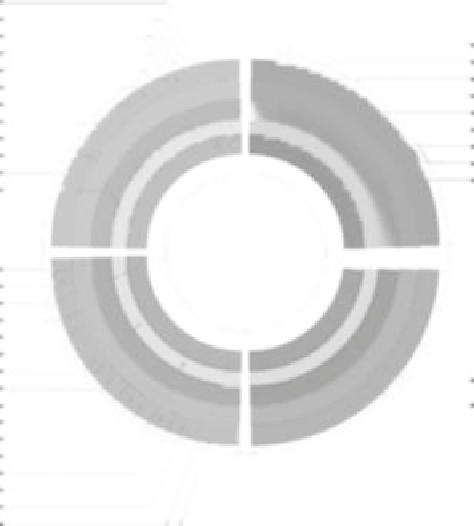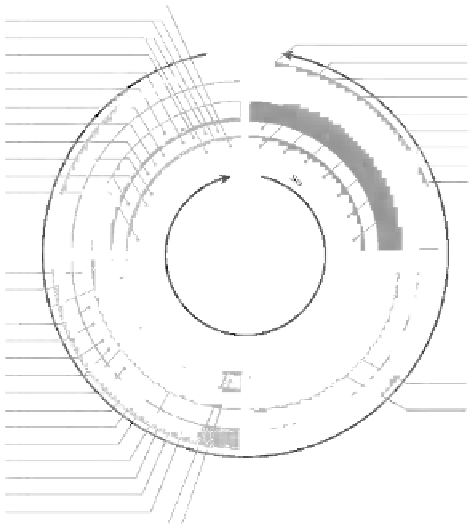Environmental Engineering Reference
In-Depth Information
The health cycle
Buruli ulcer* •
Cholera •
Cryptosporidiosis •
• Asthma
Ecoli •
• Child underweight*
Hepatitis •
• Denge
• Japanese encephalitis
Leishmaniasis •
Meningitis •
Rotavirus •
• Lymphatic filariasis*
• Malaria*
Salmonella •
• Maternal health*
Schistosomiasis •
• Onchocerciasis
Shigellosis •
• West Nile virus
Sleeping sickness •
WFMEA
W
F
M
E
A
—Water cycle
—Food cycle
—Material cycle
—Energy cycle
—Air cycle
Asthma •
Buruli ulcer* •
Dracunculiasis* •
Cancer •
COPD •
Cystic fibrosis •
Diabetes •
• Asthma
• Cancer
Heart disease •
Influenza •
Leprosy* •
Measles •
Obesity •
Pneumonia •
Strep throat •
Tuberculosis* •
Typhoid •
FIGURE 31.19
Life cycle coincidence with all diseases listed within the U.N. Millennium Report. The completion of life cycles
is the key to preventitive health care. The completion of life cycles is simultaneously the key to earning life
cycle credits. *These medical conditions are specifically concentrated upon by the UN under the Millenium
Development Goal program.
of place. Refocusing the mind to crave the nature of place might be the supreme purpose
of the design sciences, a process of persistently progressing toward some new ecology of
mind that brings the at times overly creative neocortex in line with these cycles in our
ultimate goal (Figure 31.20).
First there must be an understanding of where the community mind is and how it is
increasingly embedded into a virtual world that needs a reorientation to place. Fortunately,
our fast paced, technologically connected society is perhaps more receptive to the inter-
vention required to establish this dialogue.
13
A world where mind expansion technologies
such as the cell phone, the Internet, and computer gaming are the new reality. It is a world
where the crowd is gathering and change is happening and hopefully a place to start to
focus on a new ecology of mind and to reorient our goals to live within our planet means.
It involves the following:
• Recognize the immensity of the problem through the use of tools that can actually
mine the best of human experience while reaching the masses with the unique-
ness of place-based knowledge.
• Embrace technology as a tool to build peer-to-peer relationships and facilitate
crowd sourcing. Modern communication and information sharing is required to
perform the task of steering toward a better ecological future.






Search WWH ::

Custom Search